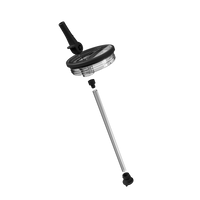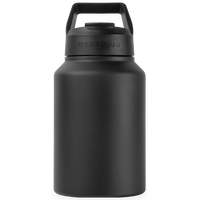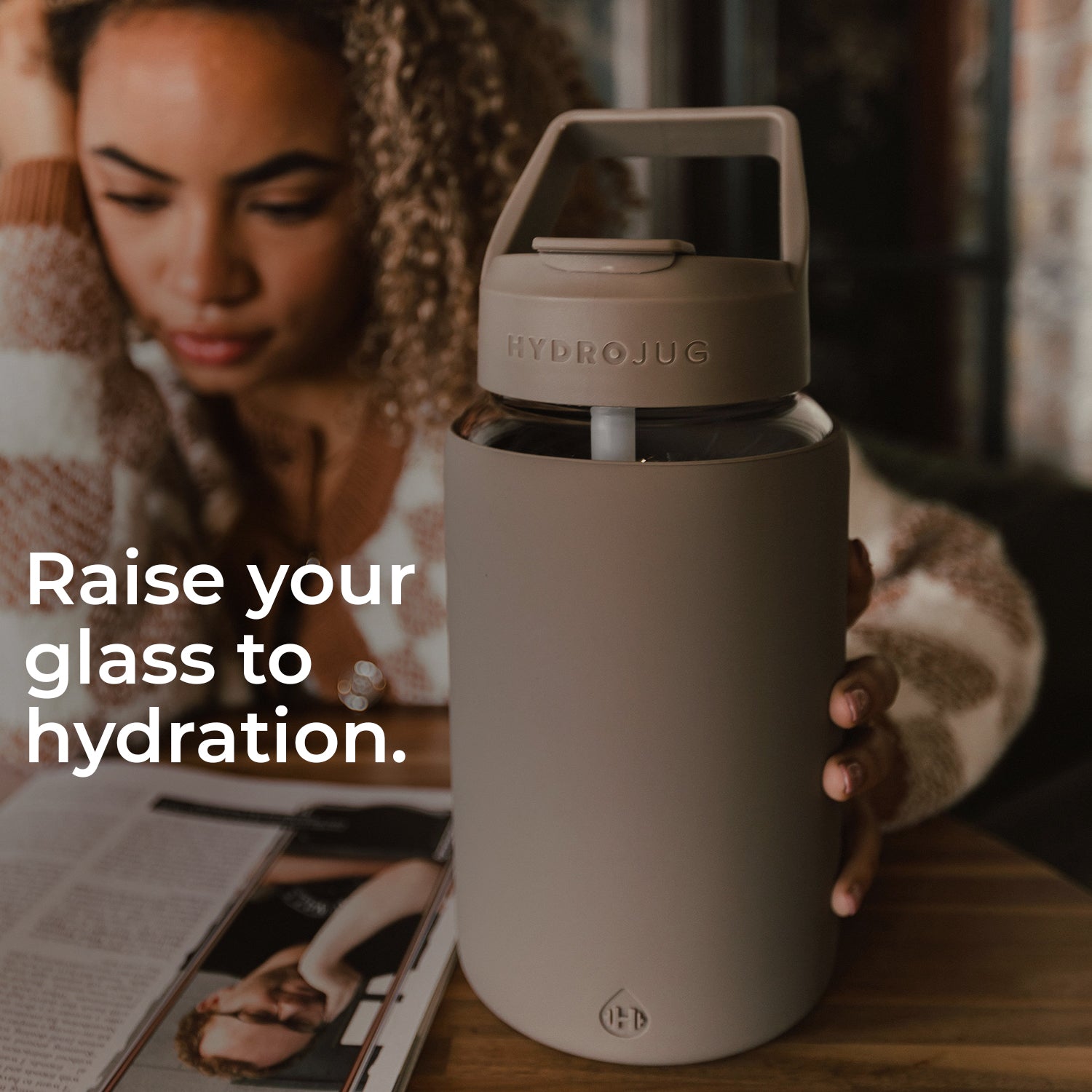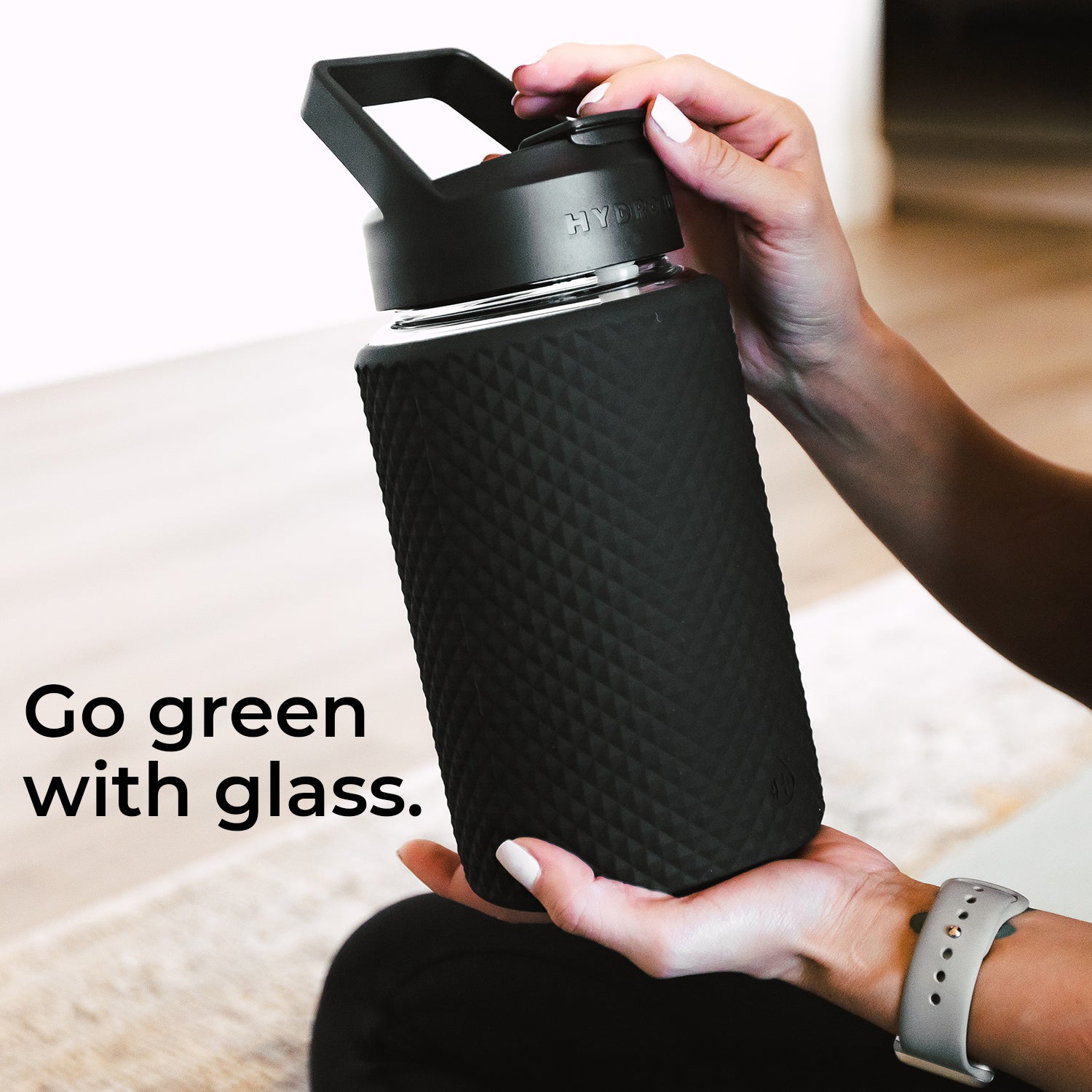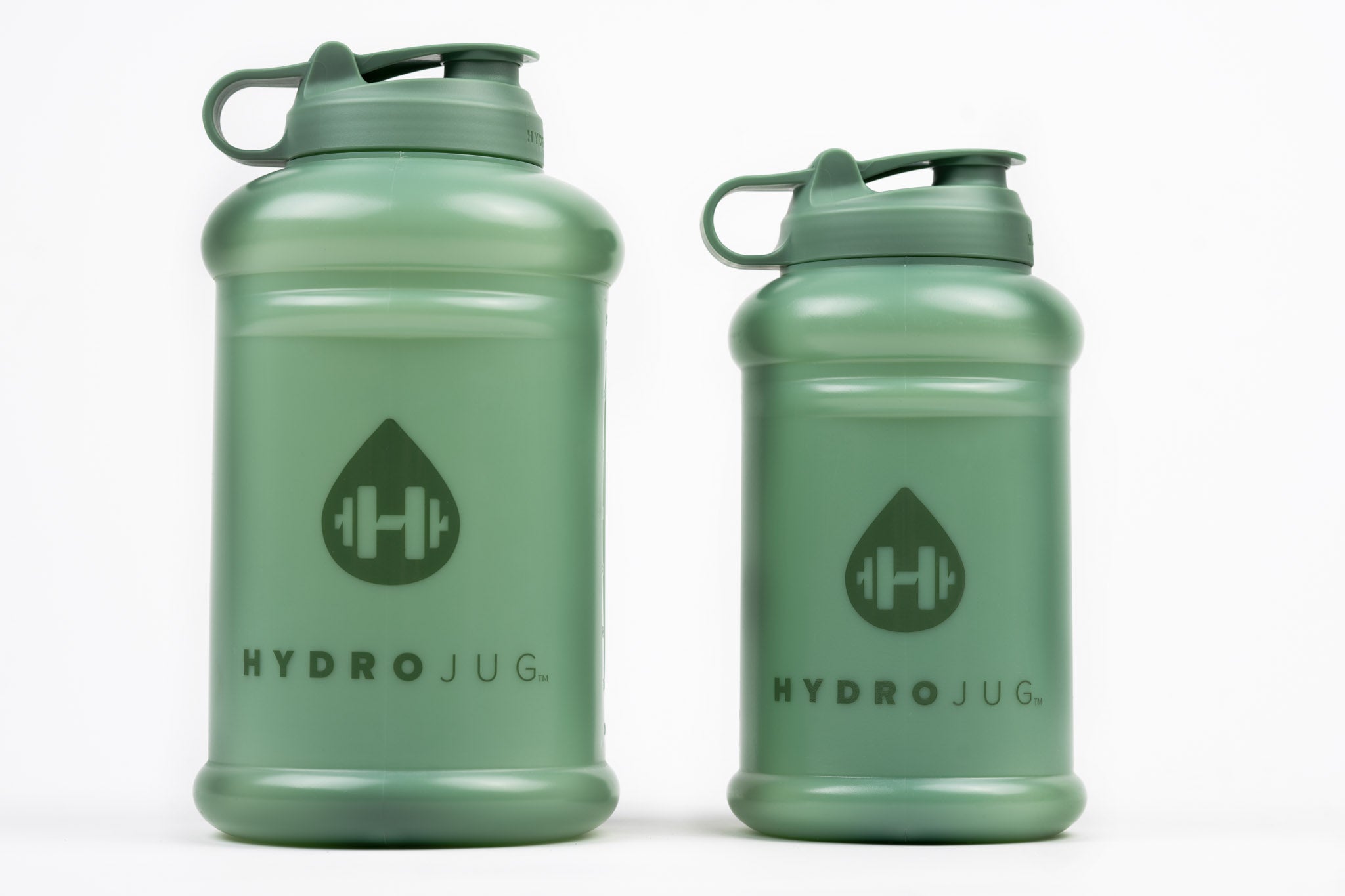
How Many Water Bottles is a Gallon?
Learn more about how much water bottles are in a gallon, the health benefits of drinking a gallon of water a day, and the best ways to squeeze in that gallon.
Drinking water on the go is essential for everyone. Consequently, water bottles are sold everywhere, in supermarkets, vending machines, and local stores. As a result, many of us know the importance of staying hydrated.
To stay healthy and fit, you must drink at least half a gallon of water daily.
How Many Water Bottles Are in a Gallon?
A gallon is a measurement system for fluid (and sometimes gasoline) in both US customary units and the British Imperial system of measurements. A gallon is widely classified into two different sizes:
- Imperial gallon. This is widely used in the UK. When measuring a gallon in pounds, it’s approximately 10 pounds or 4.54 kg. An imperial fluid ounce is 1/160th of an imperial gallon; there are two pints in a quart, four quarts in a gallon, and 20 imperial fluid ounces in one imperial pint.
- US liquid gallon. An imperial gallon is heavier than the United States liquid gallon. For example, one imperial gallon is approximately 1.2 US liquid gallons.
A gallon of water typically contains 128 fluid ounces in the US, so about 7.5 standard bottles (16.9 ounces). However, the amount of water in each water bottle will vary, so the number of water bottles in a gallon is different for each bottle size. To find the number of water bottles in a gallon, use this simple formula:
Fluid oz in a gallon ÷ fluid oz in a water bottle = No. of bottles in a gallon.
For instance, in the US, water bottles are normally in sizes of 8 ounces, 12 ounces, 16.9 ounces, 20 ounces, 24 ounces, and 34 ounces. Thus, if you have a water bottle that contains 8 fluid ounces, then 16 of those water bottles make up a gallon; hence, a gallon contains 16 water bottles. Also, 12-fluid-ounces water bottles are common in the United States. Therefore, 10.6 of these water bottles would make up a gallon of water.
Another popular water bottle size in the United States is 16.9 fluid ounces. There would be about 7.5 of these water bottles in 1 gallon.
How Much Water Should I Be Drinking Daily?
Water makes up nearly 60% of our body weight, and is necessary for your body to function correctly. Water is vital for your body because it carries nutrients to your cells, flushes toxins from your body organs, helps digest the food you eat, and cushions your joints.
If you don’t drink enough, you’ll be dehydrated. Severe dehydration may cause confusion, dizziness, and even seizures.
Health experts often recommend drinking eight 8-oz glasses, which equals about half a gallon a day, or 2 liters. This is commonly referred to as the 8x8 rule, and it’s pretty easy to remember.
However, some health specialists believe you should sip on water regularly throughout the day, even though you aren’t thirsty. But like most things, this largely depends on the person. Many internal and external factors ultimately affect how much water you should drink every day. For adults, the United States National Academies of Science, Engineering, and Medicine recommends:
- 11.5 cups or 2.7 liters every day for women
- 15.5 cups or 3.7 liters every day for men
This includes beverages like juice and teas, fluids from water, and food. You may need more water than another person. How much water you drink in a single day also depends on:
- Your location. If you live in dry, humid, and hot areas, you’ll need more water. Also, you’ll need to drink more water if you live at a high altitude or in the mountains.
- Your diet. If you drink many caffeinated drinks, such as coffee, you’ll lose more water via urination. Also, you’ll need to drink more water if your diet is too spicy, sugary, or salty. Further, you may have to drink more water if you don’t eat hydrating foods with high water contents, such as cooked or fresh vegetables and fruits.
- The environmental impact. If you spend a lot of time outdoors in hot temperatures or a heated room, you may need to drink more water because you’ll feel thirstier quickly.
- How active you are. If you’re active during the day or work out a lot, you’ll need to drink more water than a person who spends most of their time sitting at a desk. Plus, if you do intense activities, you should drink more water to cover water loss.
- How healthy you are. If you have a fever or an infection, or lose fluids through diarrhea or vomiting, you need to drink more water. Also, if you have health conditions, such as diabetes, you may need to drink more water. In addition, some medications, including diuretics, can cause you to lose more water, so you need to drink more to cover water loss.
- Breastfeeding or pregnant. If you’re nursing a baby or pregnant, you should drink more water to remain hydrated.
How Can I Drink a Gallon of Water a Day?
The advice on how much to drink a day varies based on who you ask. Some health experts believe you should only drink water when you’re thirsty, and others swear by at least eight glasses of water per day. Unfortunately, many of us aren’t drinking enough water, no matter the metric.
Fortunately, drinking a gallon of water a day doesn’t have to be a complicated chore—here are a few tips that can help you drink 1 gallon of water every day.
- Drink 16 oz of water when you wake up. After waking up in the morning, you’re most likely dehydrated and feeling a little sluggish. Drinking 16 ounces of water gets your body going, decreases your appetite, and makes you feel more awake.
- Drink a glass of water before each meal. Drinking water can help you avoid overeating, especially if you’re on a weight loss journey. Further, drinking a glass of water before sitting down for a meal can help you avoid overeating. Our bodies often misinterpret thirst as hunger, so drinking water before eating is good.
- Invest in a reusable bottle to keep in your bag while you’re out and about. It doesn’t have to be fancy, but it is crucial to grab your water bottle when walking around the city or heading to the gym. This is more environmentally friendly than buying disposable plastic bottles, and you’re likely to be well-hydrated if you carry water in your bag. HydroJug offers high-quality water bottles that can help you stay healthy and hydrated.
- If drinking plain water is too bland, mix it with tea bags, veggies, or fruits.
- Download an app to track your daily water intake. If you’re bad at monitoring your daily water intake and you thrive on rewards, then download a water-tracking app. For instance, you can download Plant Nanny, a water tracker that enables you to grow a collection of cacti and cute flowers as you drink water.
What Are the Physical Health Benefits of a Gallon of Water Daily?
Typically, you should drink a gallon of water daily for your body to function correctly. And although there are hydration benefits from eating liquid-based foods, such as soup and drinking tea, nothing beats a glass of purified water to prevent dizziness and constipation.
Here are five physical health benefits of drinking a gallon of water every day:
- More energy. Many of us deal with a lack of energy regularly. This often happens in the early afternoon, while others experience a drop in their energy levels an hour before lunch. Others just feel exhausted all the time. This may be because you’re mildly hydrated. So, if you drink a gallon of water daily, you may feel more energized during the day and even sleep better at night.
- Better skin. Well-hydrated skin looks less wrinkled and dry. Plus, spots of itchiness and flakiness become farther and fewer when your body gets enough fluids. Many people who drink a gallon of water daily have smoother and glowing skin. Increased water consumption can also moisturize your skin and improve skin elasticity, keeping it healthy and hydrated.
- Weight loss. Drinking a gallon of water daily affects weight loss by enhancing satiety and improving your metabolic rate. Studies show that drinking regularly increases metabolism by 30%.
- Headache prevention. Dehydration is a prominent cause of migraines and headaches. Increasing water consumption may ease headaches in dehydrated people, based on the type of headache.
- Body temperature balance. Water enables your internal body temperature to synchronize with the external temperature around you.
- Improves physical performance. Being well-hydrated can enhance your physical performance by regulating body temperature, preventing fatigue, and reducing oxidative stress during strenuous workouts.
There are many benefits to drinking a gallon of water a day, including headache prevention, better skin, improved brain function, and more energy.
What Are the Mental Health Benefits of a Daily Gallon of Water?
A significant symptom of dehydration is decreased mental function. Drinking 1 gallon of water a day can boost your mood, concentration, and even reduce anxiety, ultimately reducing your chronic stress hormones and positively affecting your overall mental health. Other mental health benefits include:
- Brain function. Proper hydration allows your brain to function correctly. In fact, research shows that even mild hydration can hinder adults’ memory, cognition, and brain function.
- Take “micro-breaks” daily. Staying on schedule with your daily water intake means taking a sip every 10 minutes. These micro-breaks allow you to glance away from your computer screen and focus on water, not work, and they can quickly become moments of relaxation throughout the day. You can easily take a few sips of water, set down your water bottle, look outside, take a breath, and get back to your work feeling mentally and physically refreshed.
- Remain focused. When you’re in the middle of a strenuous and stressful task, you may crave a snack—not because you’re hungry, but because your body needs a break and extra stimulation (such as a taste) to stay focused. So, before you break your concentration and eat something you don’t need, drink a glass of water. Although water may not have any taste, the micro-break and cold sensation may refresh and recenter you, allowing you to focus on what you’re doing.
- Calmer. Drinking a gallon of water a day makes your body feel steadier and less wound-up. From a calm mental baseline, you’ll be ready to tackle even the most complex tasks of the day. When you don’t drink enough water, you may feel off (mentally and physically), more stressed, thirsty, and frantic about completing your tasks.
Studies show that drinking plain water is linked to a lower risk of depression and anxiety. Getting enough water helps you feel calmer and more focused, while reducing your stress and anxiety levels.
Are There Health Risks to Drinking a Gallon of Water a Day?
Although drinking a gallon of water daily is ideal for some people, it might be too much for others.
A simple way to determine if you should increase your water intake is to look at your urine. Urine which is dark yellow to amber, is a sign of dehydration, while pale yellow urine shows that you’re well-hydrated.
Headaches, a sticky or dry mouth, cracked lips and skin, and muscle cramps are common signs of dehydration that may clear if you increase your daily water consumption.
While water toxicity is scarce in humans, drinking too much water in a short time can be dangerous.
Chugging a lot of water can also lower your sodium levels. This condition is called hyponatremia, which could be severe and even fatal. There have been several instances of life-threatening hyponatremia in adults who have drunk 200 to 320 ounces of water in over a few hours. These are extreme amounts of water that could be uncomfortable to tolerate.
So, listen to your body to avoid water intoxication and stay hydrated. As a general recommendation, drink water when you feel thirsty and stop drinking once you quench your thirst. In fact, many people can quickly meet their daily needs by simply drinking water when they feel thirsty. On the other hand, some people (including manual laborers and athletes) might need more than 100 ounces of water a day.
What Is the Average Amount of Water Consumed?
According to the US Geological Survey (USGS), the human body is approximately 60% water, and the world is made up of about 333 million cubic miles of water. That water has many uses, including irrigation, industrial use, power generation, and public consumption.
The National Health and Nutritional Examination Surveys report that an average American adult drinks more than 4 cups of water per day. The average daily amount of water Americans consume is approximately 13.4 cups, but 48% of that water comes from beverages other than plain water, and 18% comes from food. Generally, men drink more water than women do, and many Americans drink less water as they get older. Young children drink approximately 47.34 fluid ounces, and teens drink about 81.15 fluid ounces. On average, nearly 30% of that water intake comes from plain water.
Further, research shows that in 2020, Americans consumed 15 billion gallons of bottled water. That means that the average American drank 45.2 gallons of bottled water in 2020, a 3.5% increase from the previous year. In the US, tap water accounts for two-thirds of the water consumed in households, but only half of the water that’s used away from homes.
According to the USGS, 11% of water in the US is used for domestic purposes. This includes laundry, plumbing, lawn watering, and sanitation. Additionally, farming irrigation accounts for 31% of all water consumption in the United States.
What Can Happen If I’m Dehydrated?
A person becomes dehydrated when they lose more water than they consume. Since water makes up two-thirds of the human body, it’s a vital nutrient for many functions, such as lubricating joints, facilitating digestion, and getting rid of toxins to maintain healthy skin.
Dehydration can cause dizziness, mild headaches, and a dry mouth or muscle cramps. Also, most likely, you won’t need to go to the bathroom as frequently because you’ll experience minimal urge to urinate.
If you’re thirsty, your body is most likely already dehydrated. That’s because the thirst mechanism typically falls behind the actual hydration levels.
Losing body fluids without replacing them makes your blood more concentrated. This causes an increase in your heart rate to regulate your blood pressure, which sets off your kidneys to retain water, resulting in minimal urination.
Dehydration also hampers your ability to adjust your body temperature, which may cause hyperthermia or a body temperature above the average body temperature. And because this also results in low fluid levels in the brain, it may affect your memory, coordination, and mood.
When fluid loss worsens from mild to severe dehydration, that may cause physical and mental decline symptoms that call for prompt action for reversal. However, if symptoms of severe dehydration are severe, they may also need medical treatment. Signs of dehydration include:
- Dark urine or not urinating at all. Normal urine is pale yellow. So, if your pee is dark yellow, you’re moderately dehydrated. Not passing water at all means you’re severely dehydrated.
- Dry skin which doesn’t pull back when pinched. If, after pinching the top of your hand, you notice that your skin rebounds back slowly, that’s a sign that you’re either mildly dehydrated or moderately dehydrated. On the other hand, if your skin sticks together, that’s a sign you’re severely dehydrated.
- Rapid breathing and increased heartbeat. When exercising, it’s normal to have rapid breathing and an increased heartbeat. However, if these symptoms don’t disappear after cooling down, this could indicate severe dehydration because reduced amounts of water may hinder the ability of your heart to pump blood.
- Dizziness, confusion, and lightheadedness. Drinking enough water and eating liquid-filled foods can aid your brain in functioning properly. On the other hand, not drinking enough water can adversely affect your brain. So if you’re feeling confused or feeling like you’ll faint at any time, this might be a sign of severe dehydration.
- Chills and fever. We usually associate chills and fever with illness, such as flu. However, this could also be an indication of severe dehydration. If you don’t drink enough water, it’s challenging to sustain a normal body temperature. That may cause fever-like symptoms, such as chills and hyperthermia.
What Are Some Ways to Stay Super Hydrated?
It’s crucial to hydrate after any activities that cause heavy sweating, including a hot yoga class, sauna session, or intense workout. Hydrating is also critical for preventing the adverse effects of dehydration if you’re recovering from stomach flu or from a night of heavy drinking.
If you’re worried about your hydration status, these six tips can help you stay super hydrated.
- Kick start your day with oatmeal. Oatmeal is hearty, filling, and it’s also quite hydrating. When cooking oats, they expand and absorb the milk and water they’re being cooked with. However, if you don’t like a warm breakfast, try overnight oats instead. Overnight oats have the same benefits as hot oatmeal. As a bonus, sprinkle your overnight oats with chia seeds, which soak up ten times their weight in extra fluid, keeping you full all morning.
- Include more milk in your diet. A study by McMaster University reports that milk is more hydrating than sports drinks or water because of its source of carbohydrates, protein, electrolytes, and calcium.
- Try carbohydrate alternatives. When meal planning, ditch heavy carbohydrates staples, such as pasta. Instead, go for zucchini noodles, which contain approximately 95% water. If, for instance, you pair these noodles with tomato sauce, which has nearly 90% water, your meal will pack a healthy and hydrating punch.
- Drink smoothies. Besides fresh fruits and yogurt, smoothies are a brilliant and tasty way to stay super hydrated. Not sure what vegetables and fruits to choose from? Cucumbers, peaches, strawberries, blueberries, and spinach are great options.
- Drink soup. When craving a hydrating and filling meal, look no further than gazpacho or broth-based soups. When served cold, gazpacho won’t make you sweat during summer. For example, blend peppers, cucumbers, onions, tomatoes, and garlic cloves for a satisfying bowl of soup.
- Include vegetables on your plate. Like smoothies, salads are a fantastic way to get your hydrating boost. Many lettuce greens contain approximately 94% water, and that’s before adding any other vegetables. So, next time you prepare your salad, include bell peppers, carrots, tomatoes, and celery.
Again, dehydration occurs when you lose more fluids than your body takes in. Drinking water is a perfect way to stay super hydrated and rehydrate for many people.
Conclusion
There are many benefits to drinking a gallon of water a day, including headache prevention, improved brain function, improved physical performance, better skin health, and bowel regularity.
How much water you should drink throughout the day will depend on various factors, including your age, gender, medical condition, and activity level. Although there are guidelines concerning how much water you should drink, these should be a general principle. Trust your thirst and check for signs (such as urine color) to establish if you’re well-hydrated.











